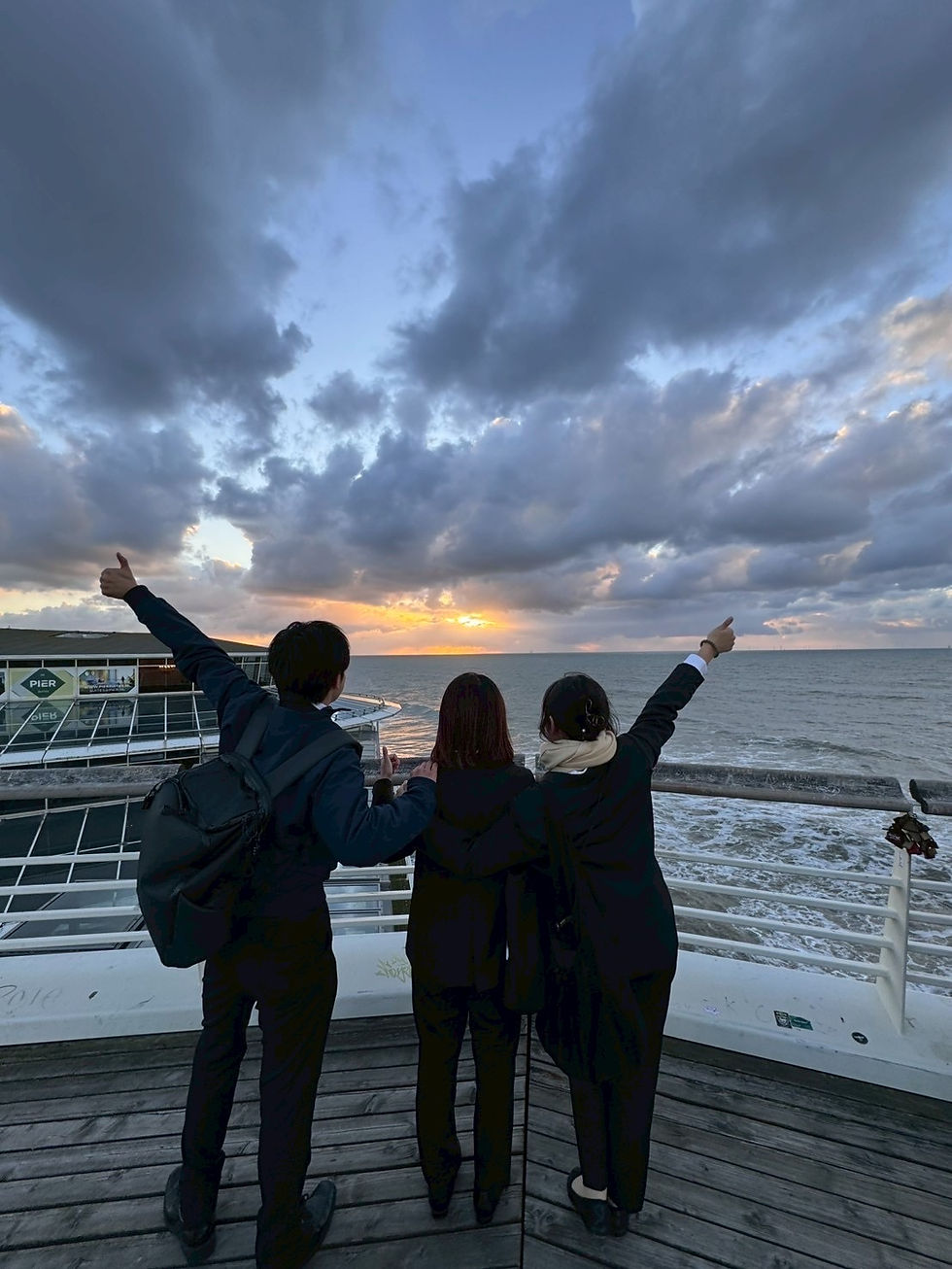MY EXPERIENCE IN THE NETHERLANDS
- Administrator
- 2023年10月21日
- 読了時間: 3分
B3 Miyu NISHIMURA
I will introduce the trip to the Netherlands for a week during the summer vacation as a study camp with a Fujii seminar. We mainly visited the International Criminal Court and other international organizations, the Japanese Embassy, and the Museums about Jewish History.
On the first day, we visited the Jewish Resistance Museum and learned about how Jews lived and resisted after the occupation by Nazi Germany. There was an exhibit that focused on four children from different backgrounds, a family was Jewish and hid his brother, a family was Dutch but supported the Nazis, and so on. Looking at the exhibits, I thought of the people who lived while struggling with various difficulties and felt the tragedy of war and persecution.
On the second and fourth day, we went sightseeing around Delft and Leiden. In the Delft, we visit the New Church rest Grotius, who was said to be the father of international law. We went up the spiral staircase of the church tower to the observatory, where we could look over the town of Delft. It was raining that day, but the view was very beautiful. We also went to Leiden market and visited Leiden University, the alma mater of Professor Fujii. Not only the universities and churches but also the scenery everywhere in the Netherlands was picturesque. I could feel the history with the cobblestone floors, brick houses, and square windows.

On the third day, we visited the International Criminal Court (ICC) and the Embassy of Japan. As I studied about "Prosecutorial Discretion at the International Criminal Court" in the Fujii seminar class last semester, I was incredibly impressed to be able to see the court. When I observed the trial, I could not hear the audio to prevent personal information from being leaked. However, I still tried to guess what was being discussed and paid attention to the expressions on the faces of the prosecutors and judges. After the trial, I had dinner with the ICC staff. In connection with a human rights issue in which I am interested, I asked ICC staff, " How do you judge when a local custom or culture is an issue in the international society?". She told me to research the country's history and listen to the stories of various local people, and the most important thing is to set "certain standards" within yourself, such as "up to this point is acceptable and from this point on it is unacceptable. I also learned that it is difficult for some women in Africa even to show their houses on a map when confirming their testimonies and that they can only get their questions across if they are phrased simply. I also learned that solving human rights issues, including educational disparity derived from gender disparity, will lead to fair trials. At the Embassy of Japan, we heard their work experience and career at the Ministry of Foreign Affairs.

The fifth day was an international open day when all the international organizations in The Hague were open to the public simultaneously. I visited the ICC, the International Criminal Tribunal for the former Yugoslavia, the EUROJUST, and the Organization for the Prohibition of Chemical Weapons (OPCW). At the EUROJUST, it was fun to learn about the efforts of EUROJUST by answering the questions. At the OPCW, I also saw a demonstration of how to put on protective clothing.
This camp was a fulfilling week and a valuable opportunity to visit international organizations because I would work there in the future. After returning to Japan, I will participate in a role-playing competition organized by the International Committee of the Red Cross, scheduled for December. I will make the most of each day and study hard to achieve my dream!




コメント